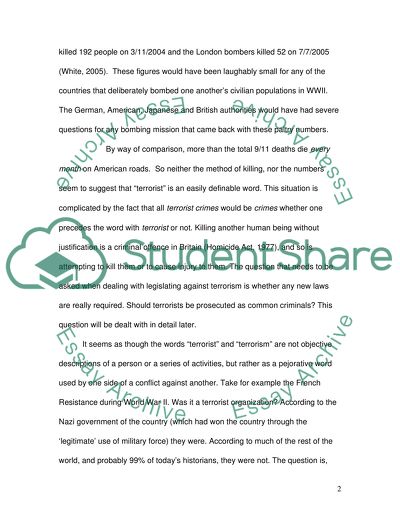Cite this document
(“Has terrorism ever succeeded in changing political reality Essay”, n.d.)
Retrieved from https://studentshare.org/miscellaneous/1540317-has-terrorism-ever-succeeded-in-changing-political-reality
Retrieved from https://studentshare.org/miscellaneous/1540317-has-terrorism-ever-succeeded-in-changing-political-reality
(Has Terrorism Ever Succeeded in Changing Political Reality Essay)
https://studentshare.org/miscellaneous/1540317-has-terrorism-ever-succeeded-in-changing-political-reality.
https://studentshare.org/miscellaneous/1540317-has-terrorism-ever-succeeded-in-changing-political-reality.
“Has Terrorism Ever Succeeded in Changing Political Reality Essay”, n.d. https://studentshare.org/miscellaneous/1540317-has-terrorism-ever-succeeded-in-changing-political-reality.


